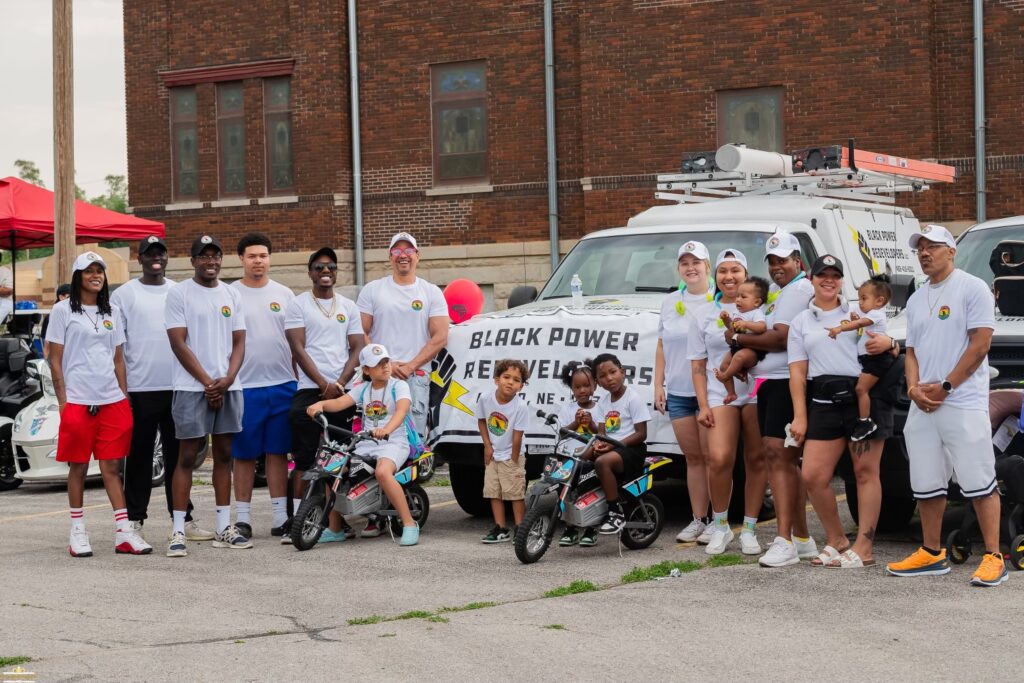Second Chance Employer Profile
Black Power Redevelopers

Depree Seavers founded his company, Black Power Redevelopers, to improve north Omaha, the community where he lives and works. His goal is to make homes safer by reducing electrical fires and to make them more energy efficient.
He also invests his time in the community by training and hiring young people and those in reentry, so that they can develop skills for a well-paying profession.
Seavers launched Black Power Redevelopers in 2018 to purchase real estate in poverty-stricken areas of north Omaha. In order to earn money to buy the properties, he works as an electrician.
“I was a journeyman electrician, and people kept hiring me. It gave me the incentive to get my contractor’s license. From that point on we began to hire electricians to work in the community,” he says.
The work that he and his employees do includes service calls, remodels and reconstructions. They work with everyone from individual homeowners to big general contractors. “I’m just slowly growing and understanding the process. My goal for today is to continue to provide my guys with work,” he says.
He now owns two properties – a duplex and a single-family home – and continues to run a busy electrical business. That business has seven employees, as well as a handful of students he hires each summer through The Empowerment Network’s Step-Up Omaha.
The employees aren’t part of an official apprenticeship program. Rather, Seavers suggests they go to Metropolitan Community College and get their electrical technology degree like he did. And they work for him at the same time.
“That’s how I like to do it,” he says. “They’re working part time. With the electrical degree you need about 4,000 internship hours, so that covers the internship hours.”
Second chance hiring practices
Of Seavers’ seven employees, two have been formerly incarcerated, which proves that small businesses can start out small with second chance hiring. One employee was incarcerated as a juvenile and the other served 12 years in a federal penitentiary and now participates in a federal work release program.
The idea to hire from this population began from visits that Seavers makes to the Douglas County Youth Center on Sundays with his pastor.
Dealing on a daily basis with workers who have been incarcerated takes a special effort, according to Seavers. Take the juvenile, for example.
“When he first came on, he didn’t have a car, so I picked him up every morning. I wasn’t charging him gas money. I was just helping him. But now he has a car,” Seavers says. “Just helping people and giving them a second chance is what it’s all about. Within three months he totally turned around. He’s enrolled in MCC (Metropolitan Community College) in the fall. It keeps him off the streets and keeps him from getting in the same trouble he got in last year.”
His other employee, the one in the work release program, required a different kind of effort. Seavers had to deal with a constant stream of phone calls asking if the guy was actually at work. And he was, but talking to the officials took up some of his precious time.
Although Seavers has tried to connect his second chance employees with support services, he feels he can do a better job on his own. “I do it all myself. I don’t get nobody’s help but God’s,” he says.
Although it’s been a lot of effort, Seavers says that hiring people in reentry is rewarding.
“The reward comes in seeing their growth. It’s also in seeing that this is what God wanted me to do,” he says. “This is my calling.”
As far as advice for others goes, “Do your due diligence to determine who they are, what they stand for and what they believe in. I never ran a background check on any of my employees. Most of these people wanted to work for me. So, I let God decide who I should hire. If you need to do a background check, though, do it.
